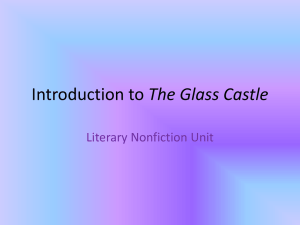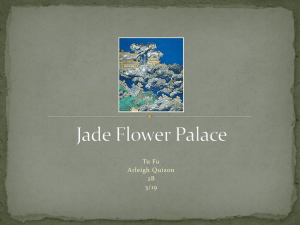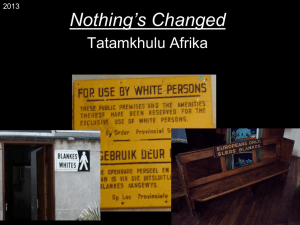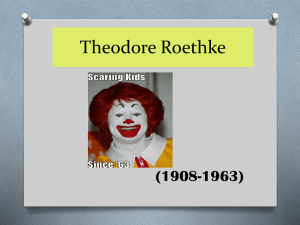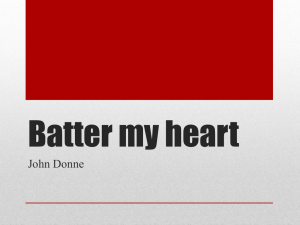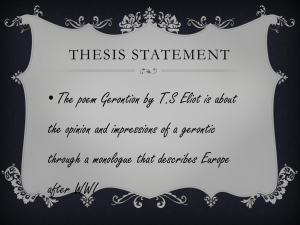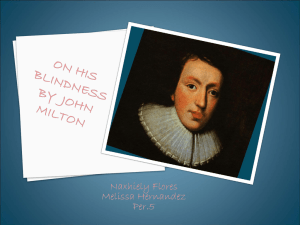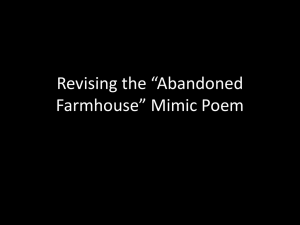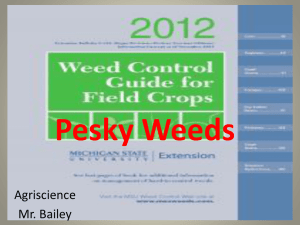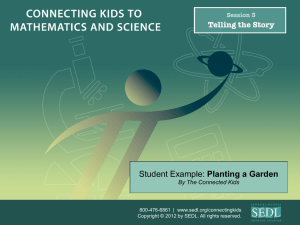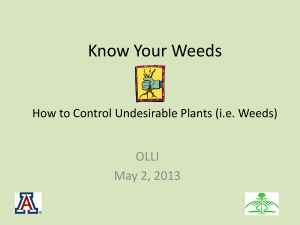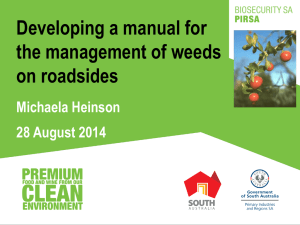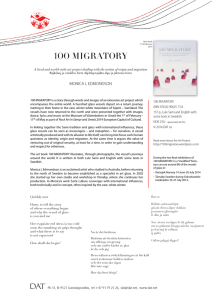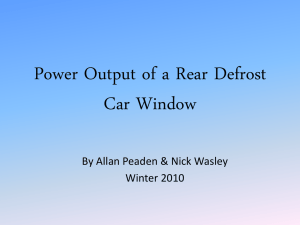apartheid - iRespect
advertisement
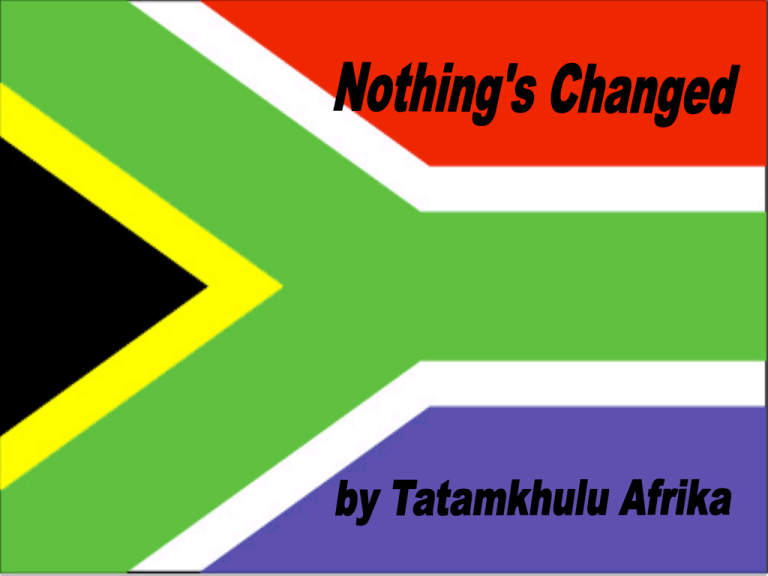
apartheid: system of racial segregation and repression of non-white people in predemocratic South Africa. Apartheid means 'separate development'. “Small round hard stones click under my heels” The power of three- 3 adjectives describing the stones Onomatopoeia-a word, which imitates a sound. “seeding grasses thrust bearded seeds into trouser cuffs” Creates image of Abandoned land, no-one lives there, it has been neglected “cans, trodden on, crunch in tall, purple-flowering, amiable weeds.” “District Six.” An area in Johannesburg, which used to be vibrant, multicultural and happy place, but was bulldozed down with the promise to be rebuilt. Unfortunately the promise was not kept so the area was left as a slum. No board says it is: But my feet know, And my hands, And the skin about my bones, And the soft labouring of my lungs, And the hot, white, inwards turning Anger of my eyes.” Repetition – use of the same word for effect. “Brash with glass, name flaring like a flag” Simile- compare one thing to another using as or like “it squats in the grass and weeds, incipient Port Jackson trees “new, up-market, haute cuisine, guard at the gatepost, whites only inn Just for rich white people “No sign says it is: but we know where we belong.” “I press my nose on the clear panes, know, “before I see them, there will be crushed ice white glass, linen falls, the single rose All shouts CLASS, EXPENSIVE, RICH, EXCLUSIVE “Down the road,” “working man’s café sells bunny chows” Bunny chow is a cheap meal, eaten by the poor people, as it was the thing they could afford “take it with you, eat, at a plastic table’s top. Wipe your fingers on your jeans, spit a little on the floor:” “It’s in the bone.” “I back from the glass, boy again, leaving small, mean O of small, mean mouth.” The poet is really ANGRY at what has become of the place where he used to live and despite change of laws in the country, nothing has changed really for the black people. Alliteration-two or more words starting with the same sound or letter. “Hands burn for a stone, a bomb, to shiver down the glass. There is a unsaid connection between anger and rage and terrorism, sadly some young people turn to it as they feel frustrated with how they have been treated by authorities or individuals. “Nothing’s changed.” 1920- 2002 Tatamkhulu Afrika ("old man of Africa") born in Egypt, the family immigrated to South Africa, lost his parents very early, he was raised by a white family, took part in WW II, worked as a copper miner, lived in District Six, opposed to Apartheid. What is the poem about? Structure Voice in the poem/narrator Poetic devices used Tone of poem What is the effect/purpose of the poem? What is the poem about? The poet returns to the wasteland that was once his home, and relives the anger he felt when the area was first destroyed. He sees a new restaurant: expensive, stylish, exclusive, with a guard at the gatepost. He thinks about the poverty around it, especially the working men's café nearby, where people eat without plates from a plastic tabletop. This makes him reflect that despite the changing political situation, there are still huge inequalities between blacks and whites. Even though South Africa is supposed to have changed, he knows the new restaurant is really 'whites-only'. He feels that nothing has really changed. The deep anger, he feels, makes him want to destroy the restaurant - to smash the glass with a stone, or a bomb. Structure the poem is set out in six stanzas (stanzas are lines of poetry that make up a unit; verses.), each of eight fairly short lines. Use of poetic devices: Onomatopoeia, Simile Repetition Tactile imagery Alliteration work through the poem, answering the following questions: What happens? What is it that the poet tells us? What are his feelings? write the story of the poem – using one sentence per stanza. Quotation ‘. . . Cans/ trodden on, crunch/ in tall, purple-flowering,/ amiable weeds.’ ‘the hot, white, inwards turning/ anger of my eyes’ ‘new, up-market, haute cuisine/ guard at the gatepost,/ whites only inn.’ ‘crushed ice white glass,/ linen falls,/ the single rose.’ ‘spit a little on the floor:/ it’s in the bone.’ ‘leaving small mean O/ of small, mean mouth.’ Significant features of language The cans suggest it is littered. The weeds show that it is unkempt. The phrase ‘amiable weeds’ draws the reader’s attention to it because of the unusual combination of friendly & weeds How it relates to the cultural/ social situation in South Africa District Six has not been fully redeveloped. It appears neglected. The blacks were forced to move out and the land is now derelict. 1. 2. 3. 4. 1. 2. Tactile imagery Repetition Harsh sounds Alliteration Sharp images Contrasts 1. Small hard round stones ‘and’ 3. Brash/ glass 4. Flaring flag – expresses contempt, Mean mouth 1. ‘the single rose’ 2. Whites only inn/ Working man’s café 2.

